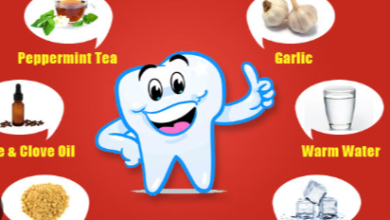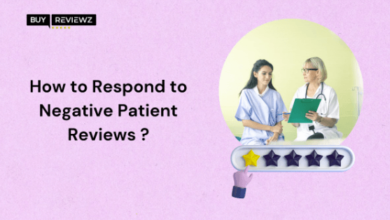Behavioral Therapies for Overcoming Heroin Addiction

Heroin addiction is a severe and complex condition that affects millions of individuals worldwide. Overcoming this addiction often requires a comprehensive treatment plan that addresses the physical, psychological, and social aspects of the disease. While medication-assisted treatments (MAT) are essential for managing withdrawal symptoms and reducing cravings, behavioral therapies play a crucial role in helping individuals achieve and maintain long-term recovery. In this article, we will explore various behavioral therapies used in heroin addiction rehab and how they contribute to successful recovery outcomes.
Understanding Behavioral Therapies
Behavioral therapies are treatments that focus on changing maladaptive behaviors and thought patterns associated with substance use disorders. These therapies are based on the principles of learning and behavior modification, aiming to help individuals develop healthier coping mechanisms, improve their emotional regulation, and build a strong foundation for a drug-free life. Behavioral therapies can be administered in individual, group, or family settings, and they are often integrated with other treatment modalities to provide a holistic approach to addiction recovery.
Key Behavioral Therapies for Heroin Addiction
- Cognitive-Behavioral Therapy (CBT) Cognitive-behavioral therapy (CBT) is one of the most widely used and effective behavioral therapies for treating heroin addiction. CBT is based on the idea that negative thought patterns and beliefs contribute to harmful behaviors, such as substance use. By identifying and challenging these thoughts, individuals can learn to develop healthier behaviors and coping strategies.
- Identifying Triggers: CBT helps individuals recognize triggers that lead to heroin use, such as stress, negative emotions, or social situations. Understanding these triggers is the first step in developing strategies to avoid or manage them.
- Developing Coping Skills: CBT teaches individuals practical skills to cope with cravings, manage stress, and deal with negative emotions without resorting to substance use. Techniques may include deep breathing, mindfulness, and problem-solving skills.
- Changing Thought Patterns: CBT helps individuals identify and challenge distorted or negative thought patterns that contribute to their addiction. By replacing these thoughts with more positive and realistic ones, individuals can reduce their desire to use heroin.
- Contingency Management (CM) Contingency management (CM) is a behavioral therapy that uses positive reinforcement to encourage abstinence from heroin and other substances. CM programs provide tangible rewards for individuals who achieve specific treatment goals, such as attending therapy sessions, passing drug tests, or reaching sobriety milestones.
- Reinforcing Positive Behaviors: CM focuses on rewarding positive behaviors, such as maintaining sobriety or participating in treatment activities. Rewards can range from vouchers and gift cards to privileges or other incentives.
- Immediate Feedback: CM provides immediate feedback and rewards for positive behaviors, which can be highly motivating for individuals in early recovery. This approach helps individuals stay engaged in treatment and committed to their recovery goals.
- Building Healthy Habits: By consistently reinforcing positive behaviors, CM helps individuals develop and maintain healthy habits that support long-term recovery.
- Dialectical Behavior Therapy (DBT) Dialectical behavior therapy (DBT) is a type of cognitive-behavioral therapy that focuses on helping individuals regulate their emotions, improve interpersonal relationships, and develop distress tolerance skills. DBT was initially developed for treating borderline personality disorder but has been adapted for individuals with substance use disorders, including heroin addiction.
- Emotion Regulation: DBT teaches individuals how to recognize and manage intense emotions that can trigger heroin use. Techniques such as mindfulness, deep breathing, and emotional regulation skills are used to help individuals stay grounded and avoid relapse.Distress Tolerance: DBT helps individuals develop skills to tolerate and cope with distressing situations without turning to heroin. This may include practices like radical acceptance, self-soothing, and finding healthy distractions.
- Interpersonal Effectiveness: DBT focuses on improving communication and relationship skills, helping individuals build healthier and more supportive social networks. This can be crucial for maintaining sobriety and reducing the risk of relapse.
- Motivational Interviewing (MI) Motivational interviewing (MI) is a client-centered therapy that aims to enhance an individual’s motivation to change and commit to the recovery process. MI is based on the principle that individuals are more likely to change when they are internally motivated rather than feeling coerced or pressured.
- Building Motivation: MI helps individuals explore their ambivalence about quitting heroin and strengthens their motivation to change. Therapists use open-ended questions, reflective listening, and affirmations to help clients articulate their reasons for seeking recovery.
- Enhancing Commitment: MI encourages individuals to set personal goals and develop a plan for achieving them. By fostering a sense of autonomy and self-efficacy, MI helps individuals take ownership of their recovery journey.
- Supporting Self-Determination: MI respects an individual’s autonomy and supports their self-determination. This approach helps individuals feel more empowered and committed to making positive changes.
- Family Therapy Family therapy involves the participation of family members in the treatment process, recognizing that addiction affects not only the individual but also their loved ones. Family therapy aims to improve communication, resolve conflicts, and strengthen the family support system.
- Addressing Family Dynamics: Family therapy helps identify and address dysfunctional family dynamics that may contribute to or result from heroin addiction. By improving family relationships, individuals can gain a stronger support network for their recovery.
- Enhancing Communication: Family therapy teaches effective communication skills, helping family members express their concerns and support each other more constructively. Improved communication can reduce misunderstandings and foster a more supportive environment.
- Building Support Systems: Family therapy helps families develop strategies to support their loved one’s recovery while maintaining healthy boundaries. This support is crucial for preventing relapse and promoting long-term sobriety.
Integrating Behavioral Therapies into Comprehensive Treatment Plans
Behavioral therapies are most effective when integrated into a comprehensive treatment plan that includes medical, psychological, and social support. Here’s how behavioral therapies can be incorporated into a holistic approach to heroin addiction treatment:
1. Assessment and Personalization
The treatment process should begin with a thorough assessment of the individual’s physical, mental, and emotional health. This assessment helps identify the most appropriate behavioral therapies and other treatment modalities to address the individual’s unique needs and circumstances.
2. Combining Therapies
Combining different behavioral therapies can provide a more robust and versatile treatment approach. For example, CBT can be used alongside MI to enhance motivation and develop coping skills, while family therapy can strengthen the individual’s support system.
3. Medication-Assisted Treatment (MAT)
Medication-assisted treatment (MAT) can be used in conjunction with behavioral therapies to manage withdrawal symptoms and reduce cravings. Medications such as methadone, buprenorphine, and naltrexone can stabilize the individual and allow them to focus more effectively on therapy.
4. Support Groups
Support groups such as Narcotics Anonymous (NA) can complement behavioral therapies by providing peer support and accountability. Participation in support groups can reinforce the skills and strategies learned in therapy and offer ongoing encouragement.
5. Holistic Approaches
Incorporating holistic approaches such as yoga, meditation, and mindfulness can enhance the effectiveness of behavioral therapies. These practices can help individuals manage stress, improve emotional regulation, and promote overall well-being.
Challenges and Considerations in Behavioral Therapy
While behavioral therapies offer numerous benefits, it is important to acknowledge and address potential challenges. Some common challenges include:
1. Engagement and Motivation
Maintaining engagement and motivation can be challenging, especially in the early stages of recovery. Therapists must work closely with individuals to build rapport, set achievable goals, and foster a sense of commitment.
2. Co-Occurring Disorders
Many individuals with heroin addiction also struggle with co-occurring mental health disorders. Addressing these disorders concurrently is essential for effective treatment. Integrated treatment plans that address both addiction and mental health are crucial for comprehensive recovery.
3. Relapse Prevention
Relapse is a common challenge in addiction recovery. Behavioral therapies must include strategies for preventing and managing relapse, such as identifying triggers, developing coping skills, and creating a relapse prevention plan.
4. Access to Care
Access to behavioral therapies can be limited by factors such as cost, availability, and geographical location. Expanding access to affordable and high-quality behavioral therapies is essential for improving treatment outcomes.
Final Thoughts
Behavioral therapies play a vital role in overcoming heroin addiction by addressing the psychological and behavioral aspects of the disease. Therapies such as cognitive-behavioral therapy, contingency management, dialectical behavior therapy, motivational interviewing, and family therapy offer comprehensive support for individuals on their journey to recovery.
Integrating behavioral therapies into a holistic treatment plan that includes medical, psychological, and social support can significantly enhance the chances of achieving and maintaining long-term sobriety. If you or a loved one is struggling with heroin addiction, seeking help from a professional treatment center that offers a range of behavioral therapies can be a crucial step toward recovery.
For those also seeking help for other substance use issues, such as Cocaine Detox, it is important to find a treatment program that addresses all aspects of addiction and provides a comprehensive approach to healing and recovery.





